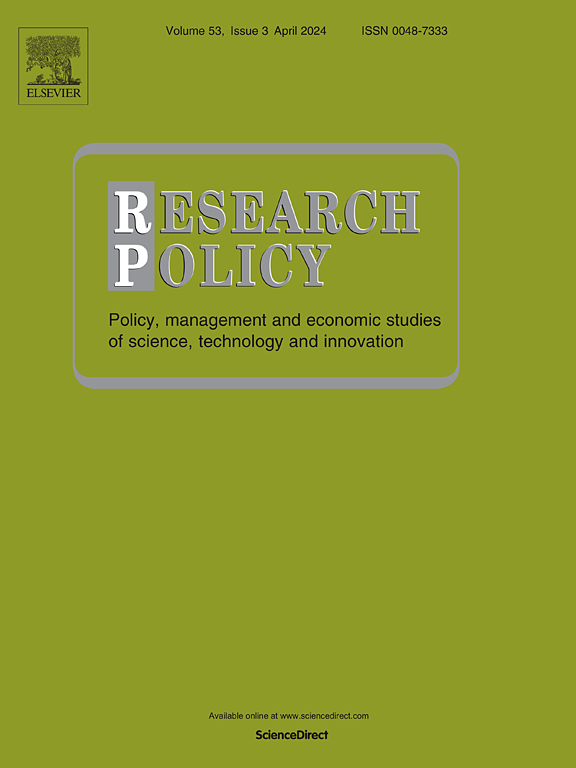技术创新系统的衰落过程:来自能源技术的教训
IF 8
1区 管理学
Q1 MANAGEMENT
引用次数: 0
摘要
技术衰退在可持续性转型中受到越来越多的关注,因为它可以加速采用可持续的替代方案,减轻污染技术的挥之不去的影响。然而,对推动现有技术衰落的过程的系统分析仍然缺乏。本文通过引入受技术创新系统(TIS)功能分析启发的“衰退函数”概念来解决这一差距。传统的情报系统功能使新兴系统蓬勃发展,而衰退功能则导致摇摇欲坠的系统崩溃。提出了四种衰退功能:合法化、引导退出、市场衰退和资源复员。这些功能应用于四个能源技术案例:白炽灯泡、石油加热、核能和内燃机汽车。通过直接文献综述收集数据。我们的分析表明,所有四个下降函数都存在,并在整个案例中发挥了重要作用。这些功能为分析和比较TIS下降的案例提供了一个系统框架,并可以为政策制定者提供可操作的见解,以加速可持续性转型。本文章由计算机程序翻译,如有差异,请以英文原文为准。
Decline processes in technological innovation systems: Lessons from energy technologies
Technology decline is gaining attention in sustainability transitions because it can accelerate the adoption of sustainable alternatives and mitigate the lingering impacts of polluting technologies. However, a systematic analysis of the processes driving the decline of established technologies remains absent. This paper addresses this gap by introducing the concept of “decline functions,” inspired by the functional analysis of technological innovation systems (TIS). While traditional TIS functions make emerging systems thrive, decline functions contribute to the unravelling of faltering systems. Four decline functions are suggested: delegitimation, guidance toward exit, market decline, and resource demobilization. These functions are applied to four energy-technology cases: incandescent light bulbs, oil-based heating, nuclear power and internal combustion engine cars. Data were collected through a directed literature review. Our analysis reveals that all four decline functions were present and played important roles across the cases. These functions offer a systematic framework for analyzing and comparing cases of declining TIS and can provide actionable insights for policymakers to accelerate sustainability transitions.
求助全文
通过发布文献求助,成功后即可免费获取论文全文。
去求助
来源期刊

Research Policy
MANAGEMENT-
CiteScore
12.80
自引率
6.90%
发文量
182
期刊介绍:
Research Policy (RP) articles explore the interaction between innovation, technology, or research, and economic, social, political, and organizational processes, both empirically and theoretically. All RP papers are expected to provide insights with implications for policy or management.
Research Policy (RP) is a multidisciplinary journal focused on analyzing, understanding, and effectively addressing the challenges posed by innovation, technology, R&D, and science. This includes activities related to knowledge creation, diffusion, acquisition, and exploitation in the form of new or improved products, processes, or services, across economic, policy, management, organizational, and environmental dimensions.
 求助内容:
求助内容: 应助结果提醒方式:
应助结果提醒方式:


